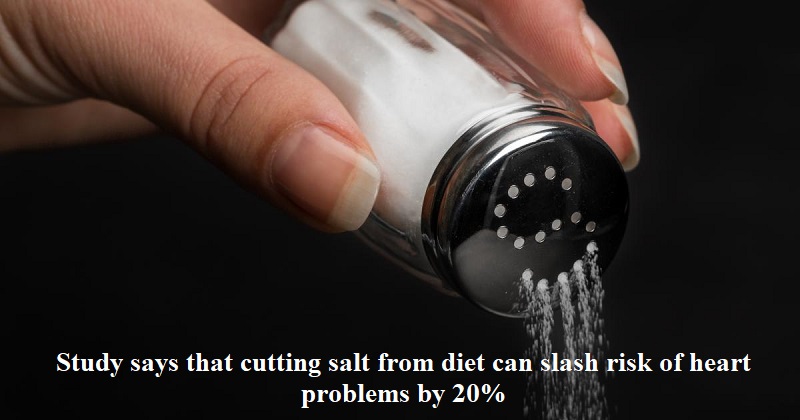
Adopting a diet devoid of salt has the potential to decrease the likelihood of heart issues and strokes by nearly 20 percent. According to a study highlighted in a report by The Guardian on Sunday (August 27), individuals who refrain from adding salt to their meals demonstrate an 18 percent lower chance of developing Atrial Fibrillation (AF), a cardiac ailment, in comparison to those who consistently include salt. The report underscores that diagnoses of this heart condition have surged by 50 percent over the past decade, reaching 1.5 million cases.
Atrial Fibrillation entails an irregular, often abnormally rapid heart rate, and individuals with this condition are at a fivefold increased risk of suffering a stroke. The study’s lead researcher asserts, “Our study indicates that lower frequency of adding salt to foods was associated with lower risk of AF.”
Leveraging data from the UK Biobank, a research initiative encompassing more than 500,000 participants aged between 40 and 70 across the UK from 2006 to 2010, the study rigorously evaluated the impact of salt consumption on health. The study excluded individuals who had already been diagnosed with AF, coronary artery disease, heart failure, or stroke.
Survey participants were queried about their salt usage frequency, categorizing their habits as “never/rarely,” “sometimes,” “usually,” or “always.” Subsequently, the researchers observed the participants over an 11-year span to determine the effects of salt consumption. Individuals who refrained from salting their meals experienced an 18 percent reduction in the risk of AF. Similarly, those who occasionally added salt demonstrated a 15 percent lower likelihood of developing the condition.
The study extends its implications, suggesting that even individuals who shift from consistently adding salt to “usually” incorporating it into their meals could significantly mitigate their risk. Those in the “usual” group exhibited a 12 percent decreased chance of AF compared to those who “always” added salt.

Post Your Comments